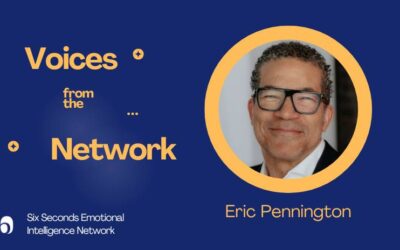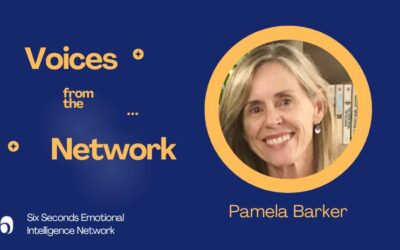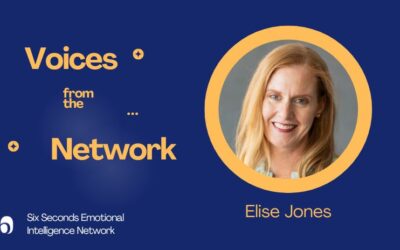But You’re Wrong!
5 Ways Not to Talk About Political Differences – and What To Do Instead

“It all started innocently enough,” Bret Wells told me. “I took my boys down to my parents’ house a few weeks ago for a nice relaxing day. My dad lives in rural Texas, though, and he’s very conservative. My teenage son Conner is not, and he’s in debate now. He’s aware of politics. We’re sitting there in the living room, and my dad walks in, and Conner says, ‘Hey, Poppy, do you know anything about this Brett Kavanaugh thing?’ I’m sitting there reading. I just looked up, and thought, “NOOOOOO…”
No one would blame Wells for fearing the course of that conversation. Kavanaugh’s nomination and the accusations against him are charged topics here in the United States, and has made an already polarized political situation even nastier and more divisive. The two sides hardly talk, and when they do, it’s often counterproductive. Because talking with someone you disagree with is hard, especially in today’s climate.
What are charged topics in your community, or your country? How often do you have open conversations with someone “on the other side” about that charged topic? It seems increasingly difficult in today’s world. Is it possible to have difficult conversations that don’t require us to demonize or dehumanize the other? To disagree without intense division? And maybe, just maybe, find common ground?
“Absolutely,” Wells reassures me, “but it’s hard and requires a lot of emotional intelligence.”
1. How we show up changes everything
Some difficult conversations seem doomed from the start. Wells says the starting point actually begins before the conversation even starts: “How we show up changes everything. Start with yourself and challenging your own assumptions about what is going to happen. Because a general rule of thumb is that we’re going to find what we’re looking for.” That rule, Wells says, is based on the way our brains are wired: “Once we convince ourselves of something, our mind goes to work finding evidence to prove us right, and we will completely ignore evidence to the contrary. No one has ever gone out looking for a fight and failed. And it’s an ideal time for those who want to have a fight. It really couldn’t be better.”
The tricky part is that most people don’t think of themselves as looking for a fight. Wells says there are some basic failures, captured by the fitting acronym FAIL, that we often bring to the table with us unwittingly. Having the self-awareness to examine these failures before we show up to the conversation is what creates the context for success. “Awareness never actually brings about change, but it’s an unavoidable and essential first step for any positive change to happen.”
2. How to recognize FAILs before they happen
What are these FAILs? It stands for False narratives, Assumptions, Interpretations, and Limiting beliefs.
Consider the political division in the United States right now. For many conservatives, the starting point is, “Liberals don’t appreciate the hard work that built this country.” For many liberals, the starting point is, “Conservatives are ignorant and uneducated, and they do not understand what’s going on.” Wells says that if that’s the starting point for the conversation, then good luck. Those assumptions and beliefs crush compromise before it ever has a chance.
Similarly, both sides of the Israeli-Palestinian conflict bring plenty of FAILs to the table. Both sides have developed a narrative about the other full of assumptions and limiting beliefs. “They will never do x because they are y.” FAILs are often so ingrained that they can be hard to recognize – and that is what gives them so much power.
“When we aren’t even aware of what we’re bringing with us to this conversation,” Wells says, “then we get really surprised when all of a sudden it takes this negative turn and it never occurs to us that it was a foregone conclusion.”
What FAILs would you bring to a conversation with someone “on the other side”? Please share them in the comments below. It’s a powerful practice to admit them and bring them out into the open. I already added mine. And speaking of taking sides…

“Check your emotions at the door.” We’ve probably all heard this admonition at one point or another. There are only a few minor problems with this tidbit of practical wisdom: It is built on…
3. How broadly do you define ‘us’
Wells’ approach begins by noticing and challenging our own divisiveness. How often are we reading headlines or browsing social media with an “Us Versus Them” mentality? While other people might be our enemies, they might not be. If we start by assuming they’re “other,” Wells says, we automatically become suspicious and wary.
In other words, do we see others as “different from us,” or do we see “all of us are fundamentally the same”? Dan Shapiro, Founder and Director of the Harvard International Negotiation Program, says “Emotional intelligence, on some level, is a recognition of our shared humanity.”
The question, as Wells frames it: What is our definition of ‘us’? And why does it matter?
“Because nobody sees himself as the villain. Everyone’s the hero in their own narratives. When we start off from a basic assumption that you’re the villain, it doesn’t work. Because guess what? Nobody thinks they are the villain. You can try to convince them that they are, but it’s not going to happen.” The only way forward, Wells says, is “finding a way that we can be a ‘we.’ It may be an “us versus them” thing overall if we both have competing goals, but we have to find some connecting point.”
“There’s some shared meaning, shared value, shared goal, something where at least we can get the chairs on the same side of the table. That shifts the emotional dynamics. That helps us to flip the script on how we come in. We come in with a posture of curiosity. We come in recognizing that there are assumptions and interpretations lying around. We show up ready to challenge those assumptions and find common ground, because finding shared values is how we are going to find a way forward.”
4. Why optimism changes the conversation
Wells’ definition of optimism really struck a chord with me, because it’s different than how most people think of optimism. Optimism, according to Wells, “is about belief in our own agency. It is the conviction that our decisions can have an impact, that we can find a solution.” It’s far more active, and less passive, than defining optimism as simply wishing for the best. It’s powerful in difficult conversations, Wells says, because it goes back to that reality that we find what we’re looking for: “Falling into pessimism, despair, and a victim mindset will almost guarantee that even if a solution presents itself, we simply will not be able to recognize it…or if we do, we’ll find that we lack the courage or conviction to pursue it. Optimism is believing that a solution can be found.”
To find common ground, we have to first believe that it can be found. Each of these tips so far is mostly about setting the stage so that the conversation goes well. But when you are in the middle of a challenging conversation, and you can feel big feelings coming up, which they inevitably will, what can you do?
Wells’ advice is to keep zooming out and focusing on the bigger picture.
5. Keep circling back to Why
Throughout the conversation, Wells stressed to me, it’s important to keep circling back to the end goal. “We have to ask ourselves, ‘What do I want out of this conversation?”
A perfect example, Wells says, is with teenagers. It’s an issue close to his heart. “With teenagers, part of the package deal is you’re going to be lecturing on the same topics over and over, because their job as a teenager is to forget what you’ve told them to do. It’s so frustrating for the parent and for the teen because you just get stuck in this eternal loop. It’s so important to go back to this question of ‘Why’? If I’m about to give the same lecture I’ve given a hundred times this week, why am I giving it again? What are my core assumptions and core beliefs here? Do I believe that they haven’t heard the things that I’ve said, that this is an information problem? If they just knew that they need to do their homework, then they would do it. Do I really believe that they’re unaware that they need to do their homework?
So what’s my goal? My goal is to help raise a healthy well-adjusted adult. Then the question is, ‘Is this approach getting us there?’ It’s clearly not, but we keep doing it because there’s really a different goal that’s driving us. It may be I want to make sure that people don’t think I’m a bad parent. It may be that I want to have control. I feel out of control because this kid’s growing up and it’s not so simple anymore and I can’t control much, but I can sit them down on the couch and make them listen to me for 20 minutes.
Are those the goals that I want to have? Are those the goals that I would intentionally choose? Is it getting me where I want to go? If not, maybe this lecture isn’t necessary. Maybe it’s not valuable, not useful. What would be? It may be that we don’t necessarily know, but now we can enter it with a place of curiosity and exploration. What could be more effective?”
The same goes for any difficult conversation. Keep circling back to Why: What do I really want? Have I slipped into the mindset that I want to convince this other person to believe what I believe? Is that the most effective way to get me where I want to go?
While he uses that strategy of circling back to Why to have difficult conversations with his teenage kids, Wells felt proud to see Conner utilizing the same tools in his conversation about Kavanaugh with his Grandpa. He could tell his son really wanted to hear his thoughts and stay focused on the goal of having a healthy conversation about it, and not just try to convince him to believe what he believed. It’s a skill cultivated through practice, and it’s needed more than ever in today’s world.
How we see everyone around us
Wells does a lot of coaching, formally and informally, in his role at the Missional Wisdom Foundation. His mindset as a coach, he says, also helps with having difficult conversations. It allows him to step back. “My central conviction is that no one is better equipped to understand what’s needed in a particular context than the person that is actually in that context. If I’m brought in as a coach, then I’m working from the assumption that you are the expert on your own context. I’m here to help facilitate your desired changes and help you to be able to figure out how to do that in a way that’s going to be organic and authentic and sustainable for you over time. We need to stop seeing everyone around us as someone who’s there to implement our vision and instead see the people around us as part of the community that makes that community more robust, more diverse, filled with greater potential.”
If we were able to see those we disagree with in this light, how would the world be different?

Rooted in Grace is a collection of essays, liturgies, and spiritual exercises focused on staying connected during difficult discussions. It was designed to be helpful in congregational discussions of the 2019 United Methodist Church General Conference and the discussion on The Way Forward, but it has application well beyond the current issues within the United Methodist Church, as we have discussed. If you are not familiar with the current issues in the Methodist Church, the most heated source of division is about the issue of the LGBTQ community, of whether they should allow openly gay clergy. The Missional Wisdom Foundation wrote this book to offer a roadmap for what it looks like to engage in difficult, heavy conversations in a way that’s productive. It doesn’t hide or avoid conflict. It deals with it, but it does so in a way that doesn’t require us to demonize or dehumanize the other. It’s about conflict without intense division. It’s a skill that the world desperately needs. Download your free chapter today or purchase the book for only $10 on Amazon.
What's new in emotional intelligence?
From Enemy to Ally: How Eric Pennington Changed His Relationship with His Own Emotions – and Found His Life’s Purpose
How emotional intelligence helped Eric Pennington transform corporate life setbacks into strengths – and find purpose in both work and life.
Helping Others Achieve Overall Well-being and Healthy Connections: How Emotional Intelligence Guided Pamela Barker’s Career Path Growth
Pamela Barker’s journey began with healing bodies, but it was her discovery of emotional intelligence that unlocked her true purpose: helping others achieve overall well-being and healthy connections. From her days as a physical therapist to becoming a passionate EQ coach, Pamela’s story is one of transformation, resilience, and the power of connection. Her experience shows that real change starts from within.
Harnessing Emotional Intelligence: How Sara Canna Supports Employees and Transforms People’s Lives at the World Health Organization (WHO)
Emotional intelligence is more than just a buzzword—it’s a transformative tool that can reshape how we navigate challenges, build relationships, and thrive in demanding environments. Discover how Sara Canna brought EQ to the World Health Organization, empowering employees to manage change, stress, and personal growth.
From Corporate Consultant to Coach: Elise Jones’ Emotional Intelligence Journey-Voices from the Network
Elise Jones transformed her career by embracing emotional intelligence, shifting from a corporate consultant to a passionate EQ Coach. Through authentic connections, she found deeper fulfilment, proving that strong relationships are key to a happier, more meaningful life.
Want to Manage Your Emotions More Effectively? Find Time to Journal About Challenging Experiences
Daily journaling to reframe unpleasant events can significantly reduce depressive symptoms, lessen stress, and increase life satisfaction.
A Journey through Empathy & Optimism: Amy Jimison in Voices from the Network
When you feel stuck and can’t see a way out, how do you navigate change? Certified Coach and leadership expert Amy Jimison shares her approach.
- Pursue Noble Goals in the Six Seconds Model of EQ - July 29, 2023
- Increase Empathy in the Six Seconds Model of EQ - July 26, 2023
- Exercise Optimism - July 24, 2023









 Rooted In Grace: Essays on Dialogue Without Division Excerpt
Rooted In Grace: Essays on Dialogue Without Division Excerpt
Wonderfully concise. I appreciate the structure and the detail covered in an engaging and structured manner. Thanks!